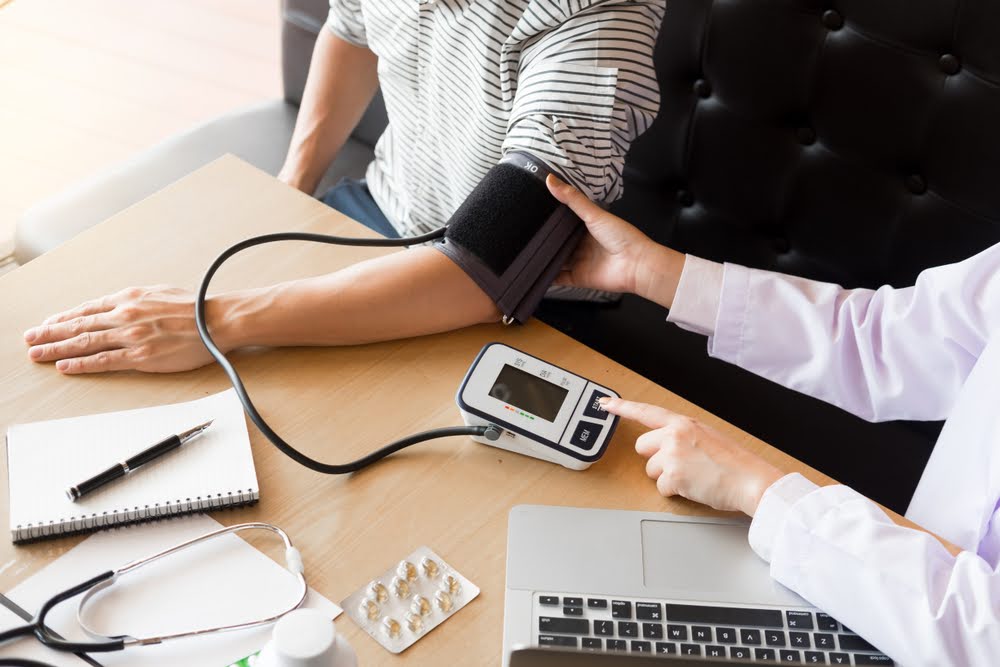Prioritizing Health and Safety: The Role of Pre-Employment and DOT Physicals in the Workplace
The foundation of any organization lies within its workforce.
As an employer, you can ensure you prioritize health and safety for candidates by implementing pre-employment and Department of Transportation (DOT) physicals.
In this comprehensive blog, we will explore the significance of these examinations, their role in job-specific positions, their contribution to safe commercial vehicle operation, and the considerations related to budgeting and costs associated with employee physical exams.
Pre-Employment Physicals
Why You Should Get a Pre-Employment Physical
Before we get into the specifics of these physicals, let’s understand their purpose in job-specific roles.
Pre-employment physicals act as a gateway to ensure that prospective employees have the physical capability to fulfill the job requirements.
These evaluations help in identifying any health concerns or pre-existing conditions that could pose a risk to the candidate or their colleagues.
What to Expect From A Pre-Employment Physical
Pre-employment physicals involve medical assessments conducted before a candidate becomes an employee.
Typically conducted in healthcare facilities by licensed healthcare professionals, these assessments can vary in scope, depending on job requirements.
A thorough physical exam may involve the following components:
1. Health History Assessment
- Candidates are usually asked to provide information about their family medical history and respond to health-related inquiries. This helps identify genetic predispositions or existing conditions that may affect their job performance.
2. Physical Examination
- Height, weight, blood pressure, and other vital signs are recorded during the physical examination to establish a baseline for vitals.
3. Drug and Alcohol Screening
- Many pre-employment physicals include mandatory drug and alcohol screening tests to ensure candidates are not impaired by substance abuse, which could jeopardize workplace safety.
4. Additional Examinations
- Depending on job requirements, candidates may undergo specific tests related to their role, assessing physical ability, stamina, flexibility, balance, cardiovascular health, strength, and even mental acuity under physical stress.
What Can Cause Candidates to Fail A Pre-Employment Physical?
Unfortunately, there are many reasons why job applicants fail a pre-employment physical.
Keep in mind that the specific criteria and reasons can vary depending on the employer and the nature of the job.
Here are some common reasons:
Physical Fitness
Some may struggle to meet the specific physical fitness requirements for the job due to health concerns or limitations that could prevent an applicant from doing their job.
Drug or Alcohol Testing
Unfortunately, some individuals may test positive for drugs or alcohol, indicating potential substance abuse issues.
A clear substance abuse issue includes safety hazards on the job. Safety is a main concern for those using, and everyone around them as misuse can be an indicator that an individual is not as alert as they should be.
Know that an employer can only require physicals if they show that the exam is related to the job and work requirements.
Who Requires Pre-Employment Physicals?
Pre-employment physicals are essential for many jobs, especially physically demanding and safety-sensitive tasks.
Some common roles frequently require candidates to undergo these evaluations:
Firefighters
- As first responders, firefighters undertake physically demanding and high-risk tasks. Pre-employment physicals ensure firefighters are fit to handle the challenges of the job, often involving heavy equipment and hazardous conditions.
Law Enforcement
- Depending on the jurisdiction and the policies of individual law enforcement agencies, law enforcement personnel can be required to take a pre-employment physical as part of the demands of public safety.
Healthcare Workers
- Healthcare professionals, such as nurses and paramedics, often undergo pre-employment physicals to guarantee they can manage the physical demands of patient care and emergencies.
Private Sector Employees
- In private sector industries like manufacturing and construction, pre-employment physicals are used to assess a candidate’s ability to perform physically demanding tasks safely.
Regulated Employees in Safety-Sensitive Jobs
- Certain industries, like commercial transportation, have specific regulations to ensure the safety of employees and the general public. Commercial drivers, for instance, often undergo pre-employment physicals to assess their fitness for the job.
DOT Physicals
How DOT Physicals Contribute to Safe Commercial Vehicle Operation
While pre-employment physicals are crucial for a range of job roles, DOT physicals play a unique and vital role in ensuring the safety of commercial vehicle operations.
These examinations are mandated by the U.S. Department of Transportation and are designed to evaluate the physical and mental fitness of individuals operating commercial vehicles, particularly those carrying hazardous materials, exceeding a 10,000-pound weight limit, or carrying more than 15 people.
What to Expect From A DOT Physical
DOT physicals are a more comprehensive and specialized form of physical examination. These tests take around 45 minutes to complete and must be taken every two years.
These physicals are conducted by licensed medical examiners listed on the Federal Motor Carrier Safety Administration (FMCSA) National Registry.
In order to receive and maintain a commercial driver’s license (CDL), the FMCSA will require employees to complete and pass a DOT physical examination.
The FMCSA certifies professional medical personnel across the country to perform DOT tests, certify the driver, and then report the results.
Examinations are rigorous and have strict guidelines to ensure the safety of commercial drivers and the general public alike.
A comprehensive DOT physical typically includes:
1. Vision and Hearing Tests
- Ensuring that commercial drivers have adequate vision and hearing is crucial for safe operation on the roads. DOT physicals assess these sensory functions to prevent accidents caused by impaired sight or hearing.
2. Blood Pressure Monitoring
- High blood pressure can increase the risk of cardiovascular issues and accidents on the road. Commercial drivers need to maintain healthy blood pressure levels to ensure safe driving.
3. Cardiovascular Health Assessment
- Commercial drivers are often required to meet specific cardiovascular health criteria to ensure they can handle the physical and mental demands of long-haul driving without putting themselves and others at risk.
4. Drug and Alcohol Testing
- Just like pre-employment physicals, DOT physicals include drug and alcohol screening tests. These are essential to identify any substance abuse issues that could impair a driver’s judgment and reaction times.
5. Physical Fitness Evaluation
- Commercial drivers must demonstrate their physical fitness, including their ability to perform tasks relevant to their job, such as safely entering and exiting a vehicle, lifting cargo, and other physically demanding activities.
DOT Disqualifying Medical Conditions
According to the FMCSA, DOT-disqualifying medical conditions could include, but are not limited to:
- Heart Disease
- Epilepsy
- Diabetes
- Vision loss
If a job candidate has these conditions, the FMCSA must evaluate the individual before granting any certifications.
Who Requires DOT Physicals?
DOT physicals are mandatory for individuals involved in commercial vehicle operations falling under the jurisdiction of the U.S. Department of Transportation.
This includes, but is not limited to:
Commercial Truck Drivers
- Long-haul truck drivers are responsible for transporting goods across the country. Commercial driver physical and mental fitness is crucial for road safety, given their extended hours behind the wheel.
Bus Drivers
- School bus drivers, city bus operators, and other bus drivers must undergo DOT physicals to ensure they can safely transport passengers, including children, the elderly, and the general public.
Airline Pilots
- Pilots are responsible for the safety of everyone on board an aircraft. Ensuring they are physically and mentally fit is part of the aviation industry’s safety standards.
Train Conductors
- Train conductors, especially those operating freight trains carrying hazardous materials, are subject to DOT physicals. Their ability to manage complex and potentially dangerous tasks is a key focus of these examinations.
Drivers of Vehicles Carrying Hazardous Materials
- Individuals responsible for transporting hazardous materials pose a significant risk if not physically and mentally fit. DOT physicals are designed to identify any potential risks associated with these transports.
Budgeting and Costs Related to Employee Physical Exams
Implementing pre-employment and DOT physicals in the workplace offers employees clear health and safety benefits.
But what are the costs related to employee physicals?
A physical exam can cost between $150 and $295 on average. However, market trends and competitiveness in the market are key determining factors for prices.
DOT Physicals and Workforce Essentials
It is evident that pre-employment and DOT physicals are indispensable tools for employers.
These examinations ensure that employees are physically able to perform their job and adhere to accident prevention in the workplace and on the road.
While there are associated costs with implementing these exams, the long-term benefits prove them to be a worthy financial investment.
At Workforce Essentials, our rates stand out as some of the most competitive in our service region.
Whether you require pre-employment physicals, DOT initial and recertification physicals, or other specialized examinations, our convenient and by-appointment services at our Clarksville and Ashland City offices are designed to meet your needs.
Prioritize the health and safety of your workforce with Workforce Essentials.
Want to learn more about our services?
Fill out our form or give us a call at 1-800-865-0981.



